
Double Your Impact for the Holidays
Double Your Impact for the Holidays
Your urgently needed year-end gift can go twice as far to provide care and support and accelerate Alzheimer's research this holiday season — and all year long. Show your giving spirit today during this 2x Match Challenge.
Donate NowPowerful Portraits and Stories of Those Living With Dementia Featured in New Book
A compelling new book, “The Day After Yesterday – Resilience in the Face of Dementia,” by photojournalist Joe Wallace was released in October. It combines powerful portraits and personal stories of people living with Alzheimer’s and other dementia to destigmatize and put a human face on a disease affecting more than 6 million Americans and their families.
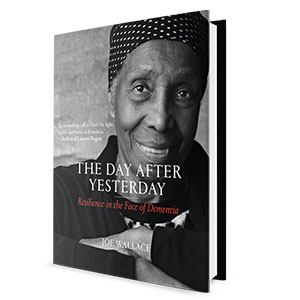 For Wallace, who has a family history of dementia, the book has been years in the making. He hopes the portraits and stories he captured will cause people to think about dementia differently.
For Wallace, who has a family history of dementia, the book has been years in the making. He hopes the portraits and stories he captured will cause people to think about dementia differently.
“I want people to see people with dementia that don’t look like they’re in despair, people who have constructive things to say, people with hope, people with honest conveyances of their grief and hardship, but in a balanced way,” Wallace said. “So many stories of diagnosis feel like life is over, and the ability to make a meaningful contribution is over, and that’s just not true for so many people.”
Among the 39 profiles included in the book are personal perspectives of seven past members of the Alzheimer’s Association National Early-Stage Advisory Group (ESAG). These Advisors made an indelible mark during their terms representing the Association. The new book is testament that they continue to advocate and make a difference in sharing their disease journey with others. Here are excerpts from the new book and the important disease-related lessons these former advisors want others to know.
Renee Perkins on Educating Others
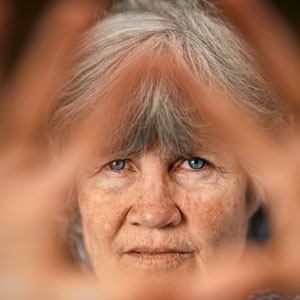 “In my lifetime, I have watched negative stigma and social awareness change about both cancer and AIDS. Together we can change the negative social stigma surrounding Alzheimer’s. Education is the key to dispelling the ignorance that causes so many to judge or form stigmas regarding dementia. Never lose sight that the person with dementia is still very much a person of value and worth.”
“In my lifetime, I have watched negative stigma and social awareness change about both cancer and AIDS. Together we can change the negative social stigma surrounding Alzheimer’s. Education is the key to dispelling the ignorance that causes so many to judge or form stigmas regarding dementia. Never lose sight that the person with dementia is still very much a person of value and worth.”
Jay Reinstein on Telling His Story to Reduce Stigma
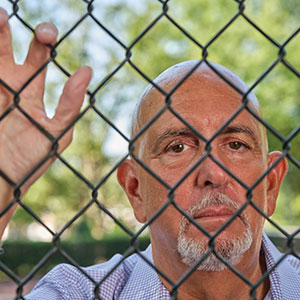 “While I like speaking to groups, at the end of the day, I want to find a cure. But I also think it’s educating folks. I’ve been in situations, and we have all heard the stories, immediately when they hear ‘Alzheimer’s’ it’s like your life is over. I think when we’re living, we have to reduce the stigma. It’s such a big part.”
“While I like speaking to groups, at the end of the day, I want to find a cure. But I also think it’s educating folks. I’ve been in situations, and we have all heard the stories, immediately when they hear ‘Alzheimer’s’ it’s like your life is over. I think when we’re living, we have to reduce the stigma. It’s such a big part.”
Arthena Caston on Eliminating Alzheimer’s
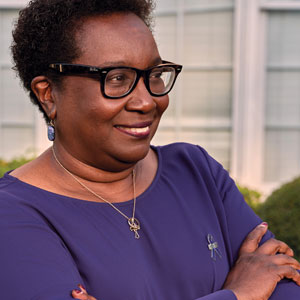 “I’m not going to give up, because who knows? I might give up, and then tomorrow they get a cure, and I’m not part of that cure, because I gave up. There’s going to be a cure one day. Again, I may not be part of it, but I definitely will be pushing people to get there. That’s what I want. That’s what I want.”
“I’m not going to give up, because who knows? I might give up, and then tomorrow they get a cure, and I’m not part of that cure, because I gave up. There’s going to be a cure one day. Again, I may not be part of it, but I definitely will be pushing people to get there. That’s what I want. That’s what I want.”
Greg O’Brien on Facing Dementia
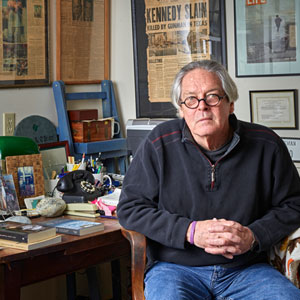 “We learn legions from the words of others. The iconic poet Robert Frost once observed: ‘In three words I can sum up everything I’ve learned about life: It goes on.’ The only way to face this demon is head-on, through faith, hope and humor, as this disease robs self-awareness, diminishes function. Empathy is the pathway to understanding and compassion gives way to power and purpose to address the burgeoning health crisis.”
“We learn legions from the words of others. The iconic poet Robert Frost once observed: ‘In three words I can sum up everything I’ve learned about life: It goes on.’ The only way to face this demon is head-on, through faith, hope and humor, as this disease robs self-awareness, diminishes function. Empathy is the pathway to understanding and compassion gives way to power and purpose to address the burgeoning health crisis.”
Jim Butler on Finding Support
 “I would encourage people that are getting a diagnosis like this to get with other people. Get in support groups with people and learn from them. Mix it up with them. You don’t have to talk even. You could just show up and listen. If you feel like talking, by all means talk because you‘ll get a lot of experienced folks that have been covering this ground for a while. You can get tears in your eyes. Good tears. And wonderful stuff happening, or your heart breaks a little because someone is sharing something. There is all kinds of stuff, doing this here and that there, but I’d enjoy being with my peers. Understanding them. Helping them. Laughing with them. Making fun of each other. Going back and forth. That’s great stuff.”
“I would encourage people that are getting a diagnosis like this to get with other people. Get in support groups with people and learn from them. Mix it up with them. You don’t have to talk even. You could just show up and listen. If you feel like talking, by all means talk because you‘ll get a lot of experienced folks that have been covering this ground for a while. You can get tears in your eyes. Good tears. And wonderful stuff happening, or your heart breaks a little because someone is sharing something. There is all kinds of stuff, doing this here and that there, but I’d enjoy being with my peers. Understanding them. Helping them. Laughing with them. Making fun of each other. Going back and forth. That’s great stuff.”
Bonnie Erickson on Supporting People Living With Dementia
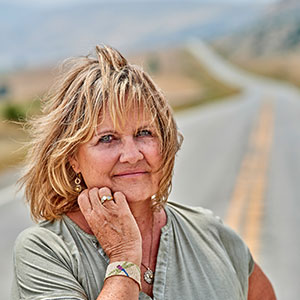 “I want to tell people that if they have a loved one, a friend, whoever, that is newly diagnosed, treat them with compassion and surround them like you would any other person with a devastating diagnosis. Don’t ignore it. Embrace them. ‘What can I do? How can I help?’ Check on them regularly. Getting a diagnosis is just so stigmatizing. Self-stigma is there too. I instantly thought I didn’t have much time, and I thought I would be at end stage in no time. I didn’t know there was all this living to do between point A and point B, and I’m grateful for that.”
“I want to tell people that if they have a loved one, a friend, whoever, that is newly diagnosed, treat them with compassion and surround them like you would any other person with a devastating diagnosis. Don’t ignore it. Embrace them. ‘What can I do? How can I help?’ Check on them regularly. Getting a diagnosis is just so stigmatizing. Self-stigma is there too. I instantly thought I didn’t have much time, and I thought I would be at end stage in no time. I didn’t know there was all this living to do between point A and point B, and I’m grateful for that.”
Mike Belleville on Living With Purpose
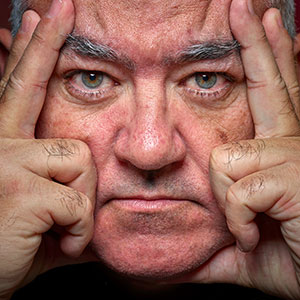 “I want people to understand that you can still live a meaningful, purposeful life with the time you have. Don’t believe the narrative that life is over. I want my voice to help get people to treat us the same as they did before we got a diagnosis. We may change some, but we are the same people. TALK TO US! WE ARE STILL HERE.”
“I want people to understand that you can still live a meaningful, purposeful life with the time you have. Don’t believe the narrative that life is over. I want my voice to help get people to treat us the same as they did before we got a diagnosis. We may change some, but we are the same people. TALK TO US! WE ARE STILL HERE.”
About: Joe Wallace has been a portrait photographer and storyteller for twenty years. His photo-narrative work blends his journalistic eye with his fine art sensibility. Several members of his family have lived with dementia, compelling Wallace to tell a more complex and honest story of those living with the disease. His new book, “The Day After Yesterday – Resilience in the Face of Dementia,” was released on Oct. 3.

The first survivor of Alzheimer's is out there, but we won't get there without you.
Donate Now
Learn how Alzheimer’s disease affects the brain.
Take the Brain Tour
